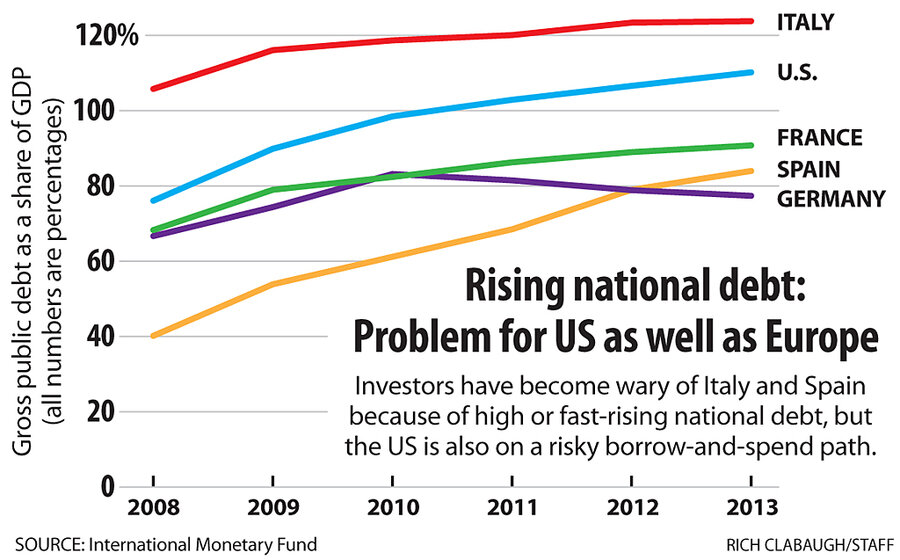Not necessarily. Remember, the feared "Grexit" may never happen, and not all Greek-exit scenarios are a recipe for crisis.
If the eurozone engineered an "orderly" departure, with a deal to restructure Greece's debts and support its banking system, the spillover might be modest. Greece, after all, accounts for less than 1 percent of the global economy.
The problem would be a disorderly exit. Chaos in Greece could be accompanied by rising uncertainty about other high-debt nations.
"Bank runs would extend to other countries, including Spain, Portugal, Italy, possibly France," predicts George Magnus in an analysis for the European Centre for International Political Economy. For Europe's economy, he says, this would mean a "catastrophic decline."
That's the scenario that carries big risks to trade, investor confidence, and banks beyond Europe. Economists at the IMF, while not outlining a worst-case scenario, have tried to model the global impact of banking troubles that prompted eurozone gross domestic product to fall by 3.5 percent. They predict that the spillover effects would be harshest in regions with the closest banking ties to Europe: Africa, the Middle East, and Latin America. But the IMF sees the rest of the world facing a hit to GDP of one or two percentage points.
In other words, a bad outcome in Europe creates a high recession risk in the US.








